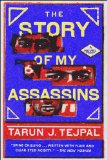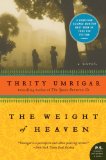Summary | Excerpt | Reading Guide | Reviews | Read-Alikes | Genres & Themes | Author Bio

A Novel
by Manil SuriSuffused with Hindu mythology, this story of one apartment building becomes a metaphor for the social and religious divisions of contemporary India. "Vibrantly alive, beautifully written, full of wonderfully rich and deeply human characters
At the opening of this masterful debut novel, Vishnu, the resident odd-job man, lies dying on the staircase he inhabits while his neighbors the Pathaks and the Asranis argue over who will pay for an ambulance. As the action spirals up through the floors of the apartment building we are pulled into the drama of the residents’ lives: Mr. Jalal’s obsessive search for higher meaning; Vinod Taneja’s longing for the wife he has lost; the comic elopement of Kavita Asrani, who fancies herself the heroine of a Hindi movie.
Suffused with Hindu mythology, this story of one apartment building becomes a metaphor for the social and religious divisions of contemporary India, and Vishnu’s ascent of the staircase parallels the soul’s progress through the various stages of existence. As Vishnu closes in on the riddle of his own mortality, we wonder whether he might not be the god Vishnu, guardian not only of the fate of the building and its occupants, but of the entire universe.
From Manil Suri
The Death of Vishnu is the first in a trilogy of novels I plan to write.
As I mention in the front pages of the novel, The Death of Vishnu started with the death of an actual man named Vishnu, who lived on the steps of the building in which I grew up. I began it in 1995, and soon after took my first writing workshop, at the Writer's Center in Bethesda, MD with Jane Bradley, author of the searing works "Power Lines" and "Living Doll." Jane was the one who told me that I could not call a character "Vishnu" without connecting him somehow to the God Vishnu -- it was too potent a name. That's when I started reading up on Hindu mythology and using it in my fiction -- it was really the title that fueled the story.
Sometime after finishing the third chapter, it suddenly struck me. The Hindu trinity, known as "Trimurti" (or "three forms") consisted of Brahma the creator, Vishnu the preserver and Shiva the destroyer. With it were the three ingredients of the cycle of existence: life, death and birth. Matching them gave three titles, so that the next two books could be The Life of Shiva and The Birth of Brahma.
So now I have two more titles, that have both sprung up from the original event of Vishnu's death, and are waiting to generate stories of their own. The goal will be not to write treatises on Hinduism, but create narratives and characters that throb with the spirit of what each deity represents. Shiva, for instance, is not only the destroyer, but also the ascetic, and since he is unattainable, this asceticism makes him an erotic figure. The second novel will therefore involve characters who experience unrequited attraction, set against the backdrop of Shiva exercising his tremendous powers of purification. To renew the cycle will be regeneration, as represented by Brahma. This will be the opportunity to explore the process of creation -- not only in a cosmic sense, but also by ordinary flesh and blood characters, whether they be artists or writers or scientists, or (dare I say) mathematicians.
PS: I could, of course, have called the other two books The Birth of Shiva and The Life of Brahma -- but I think it's Shiva's life as an ascetic that is more interesting, and the moment of Brahma's birth that resonates most with the idea of creation.
 Amy Tan, author of The Joy Luck Club
A wonder of a book. From the first page I could tell that this is an astonishing debit, sure to win readers and prizes.
Amy Tan, author of The Joy Luck Club
A wonder of a book. From the first page I could tell that this is an astonishing debit, sure to win readers and prizes. Andrea Barrett, National Book Award winning author of Ship Fever
Sympathetic, penetrating, comic and moving, this fine and unusual first novel unexpectedly braids Hindu mythology and traditions into the daily life of a broad cast of wonderfully drawn characters. The result draws on the best storytelling traditions of both east and west.
Andrea Barrett, National Book Award winning author of Ship Fever
Sympathetic, penetrating, comic and moving, this fine and unusual first novel unexpectedly braids Hindu mythology and traditions into the daily life of a broad cast of wonderfully drawn characters. The result draws on the best storytelling traditions of both east and west. Jim Crace, author of Quarantine
Manil Suri's The Death of Vishnu finds the Universe in a block of Bombay flats; it is tender, caustic, witty, and inspired.
Jim Crace, author of Quarantine
Manil Suri's The Death of Vishnu finds the Universe in a block of Bombay flats; it is tender, caustic, witty, and inspired. Michael Cunningham, Pulitzer Prize-winning author of The Hours
Vibrantly alive, beautifully written, full of wonderfully rich and deeply human characters. . . . The depiction of the Asranis and the Pathaks, in all their convincingly human awfulness, brings to mind such masters of scrupulous meanness as Flaubert and Flannery O'Connor.
Michael Cunningham, Pulitzer Prize-winning author of The Hours
Vibrantly alive, beautifully written, full of wonderfully rich and deeply human characters. . . . The depiction of the Asranis and the Pathaks, in all their convincingly human awfulness, brings to mind such masters of scrupulous meanness as Flaubert and Flannery O'Connor. Vikram Chandra, author of Love and Longing in Bombay
A man named Vishnu lies dying on the staircase of a Mumbai apartment building. . . . Through the maneuverings of the building's denizens, Manil Suri has created an intimate and intricate portrait of life in this metropolis.
Vikram Chandra, author of Love and Longing in Bombay
A man named Vishnu lies dying on the staircase of a Mumbai apartment building. . . . Through the maneuverings of the building's denizens, Manil Suri has created an intimate and intricate portrait of life in this metropolis.
If you liked The Death of Vishnu, try these:

by Tarun J. Tejpal
Published 2013
Part thriller and part erotic romance, full of dark humor and knife-edged suspense, The Story of My Assassins is an awesome adventure into the heart of today's India.

by Thrity Umrigar
Published 2010
Filled with satisfyingly real characters and glowing with local color, The Weight of Heaven is a rare glimpse of a family and a country struggling under pressures beyond their control. Umrigar illuminates how slowly we recover from unforgettable loss, how easily good intentions can turn evil, and how far a person will go to build a new world for ...